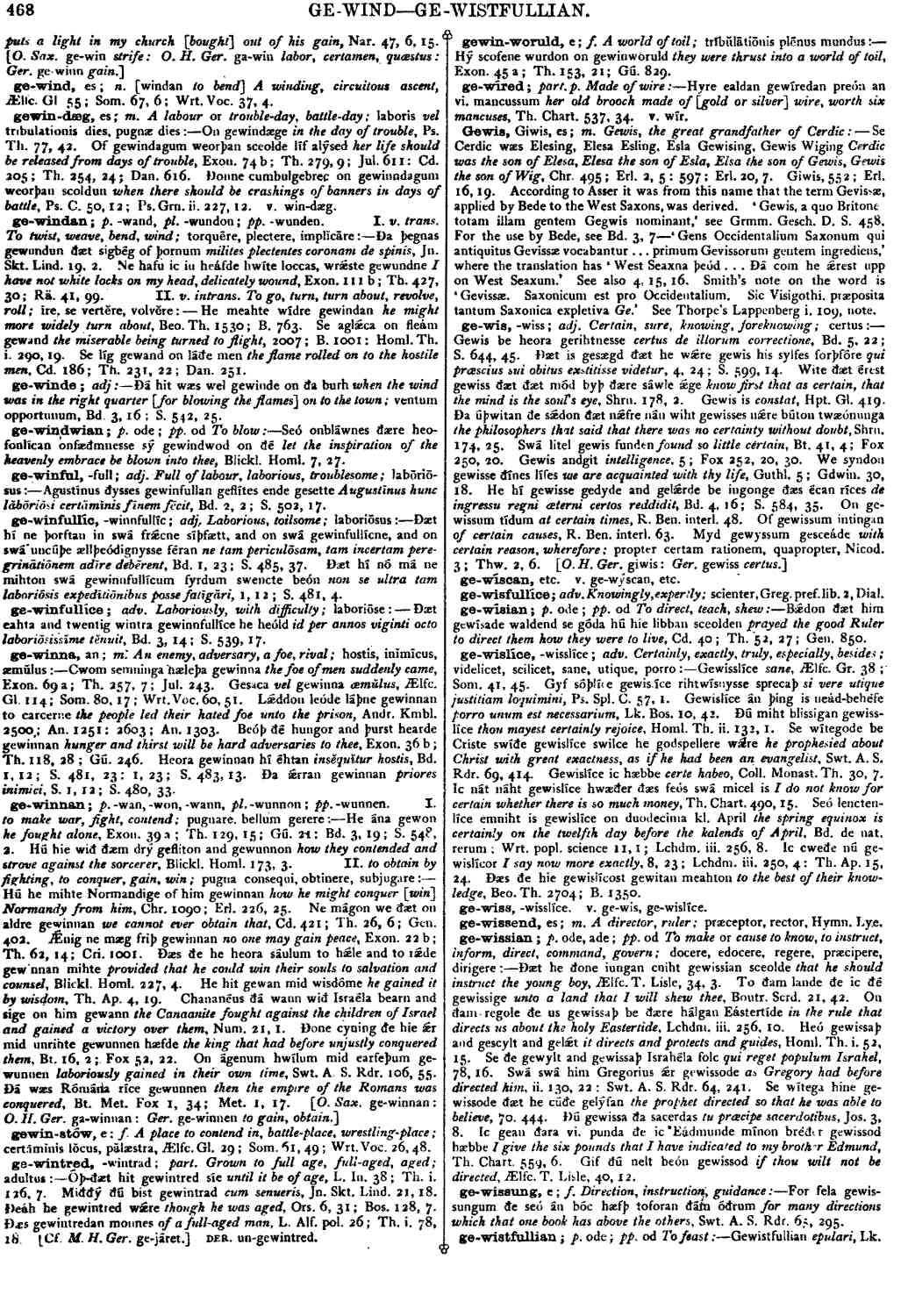ge-winnan
- verb [ strong ]
-
He ána gewon
he fought alone,
- Exon. 39 a ;
- Th. 129, 15 ;
- Gú. 21 :
- Bd. 3, 19 ;
- S. 548, 2 .
-
Hú hie wið ðæm drý gefliton and gewunnon
how they contended and strove against the sorcerer,
- Blickl. Homl. 173, 3 .
-
Hú he mihte Normandige of him gewinnan
how he might conquer [win] Normandy from him,
- Chr. 1090 ;
- Erl. 226, 25 .
-
Ne mágon we ðæt on aldre gewinnan
we cannot ever obtain that,
- Cd. 421 ;
- Th. 26, 6 ;
- Gen. 402 .
-
Ǽnig ne mæg friþ gewinnan
no one may gain peace,
- Exon. 22 b ;
- Th. 62, 14 ;
- Cri. 1001 .
-
Ðæs ðe he heora sáulum to hǽle and to rǽde gewinnan mihte
provided that he could win their souls to salvation and counsel,
- Blickl. Homl. 227, 4 .
-
He hit gewan mid wisdóme
he gained it by wisdom,
- Th. Ap. 4, 19 .
-
Chananéus ðá wann wið Israéla bearn and sige on him gewann
the Canaanite fought against the children of Israel and gained a victory over them,
- Num. 21, 1 .
-
Ðone cyning ðe hie ǽr mid unrihte gewunnen hæfde
the king that had before unjustly conquered them,
- Bt. 16, 2 ;
- Fox 52, 22 .
-
On ágenum hwílum mid earfeþum gewunnen
laboriously gained in their own time,
- Swt. A. S. Rdr. 106, 55 .
-
Ðá wæs Rómána ríce gewunnen
then the empire of the Romans was conquered,
- Bt. Met. Fox 1, 34 ;
- Met. 1, 17 .
Bosworth, Joseph. “ge-winnan.” In An Anglo-Saxon Dictionary Online, edited by Thomas Northcote Toller, Christ Sean, and Ondřej Tichy. Prague: Faculty of Arts, Charles University, 2014. https://bosworthtoller.com/16837.
Checked: 1